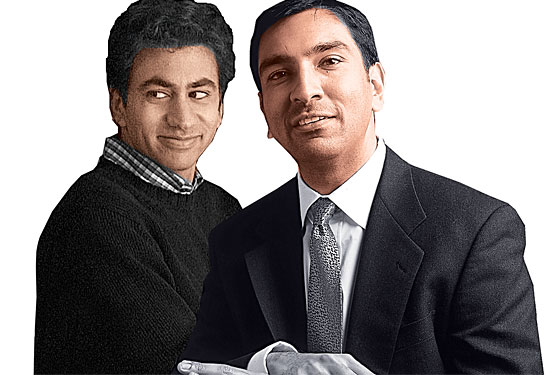
With the movie version of The Namesake in theaters, Vishaan Chakrabarti says, “I knew this was going to come out at some point.” Chakrabarti, the former head of City Planning in Manhattan who now works with the Related Companies on Moynihan Station, has good reason to believe he’s the inspiration for Gogol, the protagonist of Jhumpa Lahiri’s novel (Kal Penn’s role in the movie). “Maybe it’s just coincidence that nine-tenths of the book is the same as my life,” he says, “but it was my friends who pointed it out. Anyone who knew me well saw the similarity immediately.” And one of those friends told us, so we called him to explain himself.
In the book, Gogol is a young Indian-American with assimilation issues. Like Chakrabarti, he studies architecture. He dates non-Indian women, to his parents’ chagrin, and, after his father’s death, shaves his head and lets his mother set him up for the first time with an Indian girl—which is how Chakrabarti met Lahiri. As in the book, Chakrabarti’s mother decided to become a classical Indian singer, his family is Bengali, his father is a scientist, and his mother a librarian. And his parents had given him a nickname that he hated so much he changed it while in college. (He won’t say what it is.)
Lahiri had no comment on Chakrabarti, who does note many differences between himself and Gogol. Most important, he and Lahiri dated only briefly, not getting hitched and divorced, as in the book. Chakrabarti, who’s now married, says they simply never hit it off. He’s talked to Lahiri once since the book came out, at a book signing. “I thought she might say something,” he said. “It’s interesting, but she didn’t acknowledge it. Even the way she signed it was like, ‘Nice to see you.’”
Have good intel? Send tips to intel@nymag.com.